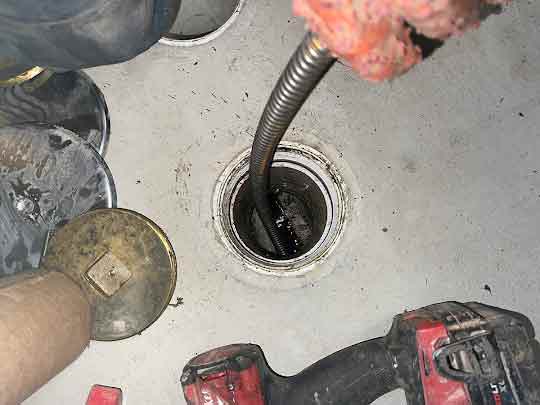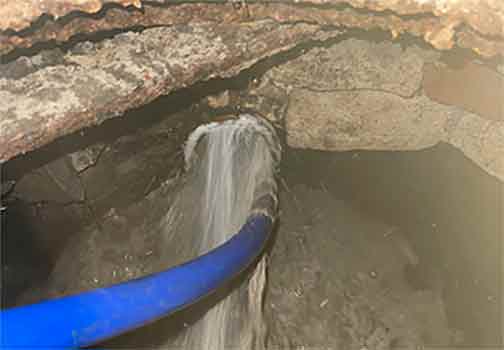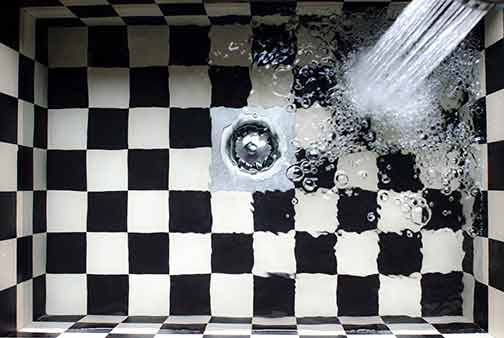
Clogged drains are a common source of frustration for many families. They could lead to costly plumbing repairs from a backed-up toilet or other fixture in your home. Why it’s so important to clean your drains regularly, how to do it, and how to prevent clogs altogether are all topics we’ll cover in this piece.
How to Clean Your Drains
The process of cleaning drains can be as simple as using a plunger or as involved as hiring a professional. But regularly cleaning your drains should still be done since floods are dangerous and you should try to prevent them. And regular cleaning is the best way to do so. Some of the more common methods include:
Hot Water
One simple way to clean drains is to flush hot water down them. If oil and other debris clog your pipes, running hot water through them may help loosen them. Just flush it with boiling water, and you’re done. You may need to use this method multiple times if your drain is clogged.
Baking Soda and Vinegar
One traditional home treatment for clogged drains is a mixture of baking soda and vinegar. To start, pour one cup of baking soda into the garbage disposal. A cup of vinegar should be added after that. The mixture will typically foam and bubble. Wait a few minutes for the sediment to settle, then flush the drain with hot water to remove any lingering debris. And this is a fast and easy way to clean your drains regularly.
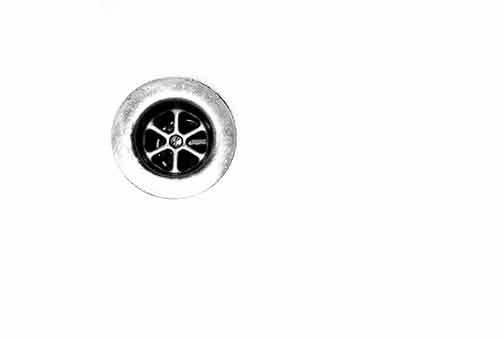
Baking soda and vinegar can be of great help
Plunger
When drains become clogged, a plunger comes in handy. Before using a plunger, make sure the sink or bathtub is empty. Over the drain, maintain a constant down-and-up pressure using the plunger. This will create suction, which will help clear your pipes of any debris.
Snake
Pipeline obstacles can be removed using a snake, sometimes called an auger. Use a drain snake by inserting it into the drain and twisting it as you work it deeper and deeper into the pipes. If a clog is encountered, the snake can be twisted to loosen it before being pulled from the drain.
Preventing Drain Clogs
Preventing clogs in the first place is preferable to fixing them after they have already formed. There are a lot of tips on how to avoid plumbing issues, but here are some just some of the ways to do so:
Use a Strainer
A strainer is one of the simplest ways to keep water from backing into your sink or tub. Strainers prevent clogs by collecting debris like hair and food scraps before they enter pipes.
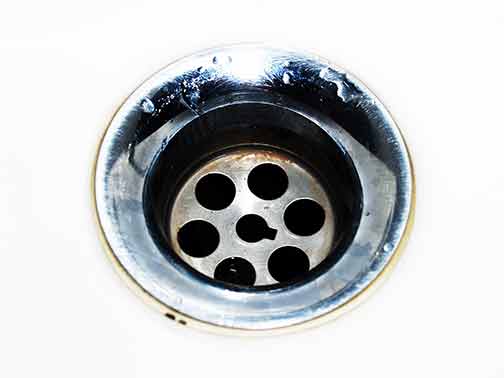
You can use a strainer when you clean your drains regularly
Avoid Pouring Grease Down Your Drain
Grease builds up and causes clogs in drains frequently. As the grease cools, it solidifies and can cause clogs in pipes. Put the used oil in the trash or a grease can instead of the sink.
Flush Your Drains Regularly
Grease and other buildups in your pipes can be easily removed by running hot water through your drains regularly. It’s a quick and easy way to avoid obstructions.
Don’t Flush Non-Biodegradable Items
Toilet paper and human waste are the only things in the toilet. Non-biodegradable items such as paper towels, sanitary napkins, and baby wipes can cause severe clogging problems in plumbing systems. Put these items in the trash can.
Maintain Your Plumbing System
Maintaining your plumbing system will help prevent clogs. Contact an experienced plumber regularly to check your pipes, identify any issues, and clean your drains regularly.
Why Clean Your Drains Regularly?
Maintaining a clean drain is essential to the health of your home’s plumbing system. Pipes can become clogged with debris like hair, soap scum, and food scraps. If you don’t remove the obstructions, water will back up and damage your pipes. Our friends at Pack & Go Movers also recommend cleaning your drains before moving or going away for the holidays. Nothing must clog when you are not home.
If you have a problem with noxious odors from your drains, regularly cleaning them may help. When food and other organic materials rot in your pipes, odors can permeate your home. Maintaining a regular cleaning routine will help prevent this and leave your home smelling and looking great.
Dealing with Stubborn Clogs
Drains can become clogged even if you take preventative measures and clean them regularly. If you’ve tried DIY drain cleaning methods without success, it’s probably time to call a pro. There are many options when you decide to call upon drain unclogging services. But here are some signs you should do so:
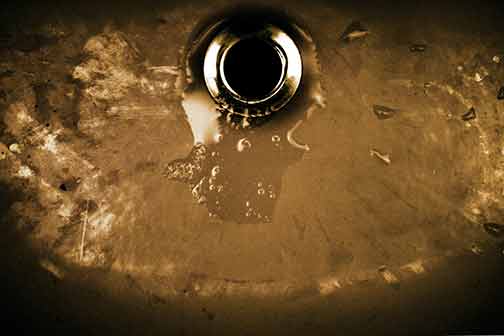
If you have persistent clogs, then you can call a pro for help
Persistent Clogs
If you have tried do-it-yourself methods to unclog the drain and it is still not working, it is time to call a plumber for professional drain cleaning services. No matter how pervasive, a licensed plumber can locate and clear any obstruction.
Foul Odors
A clog in your drain could be the source of a foul odor. This is especially true if gurgling or slow drainage accompanies the smell. A professional plumber can diagnose the issue and offer a solution.
Multiple Clogs
Multiple clogs in multiple drains could indicate a more severe issue in your home’s plumbing system. If there is an issue with your pipes, a professional plumber can camera inspect the sewer lines and find the source.
Backups
Clogged pipes can cause several unpleasant plumbing problems, including backups in the sink or tub. A licensed plumber can trace the problem to its origin and offer a solution to ensure it doesn’t happen again.
Conclusion
Maintaining the efficiency of your home’s plumbing system requires you to clean your drains regularly. You can avoid costly drain clogs by adhering to the guidelines. Put a strainer over the drain of your sink or tub, never put oil down the drain, flush your drains often, throw away any garbage that isn’t biodegradable, and ensure your plumbing is in good operating order. Following these simple guidelines, you can keep your drains in good working order and avoid costly repairs.
